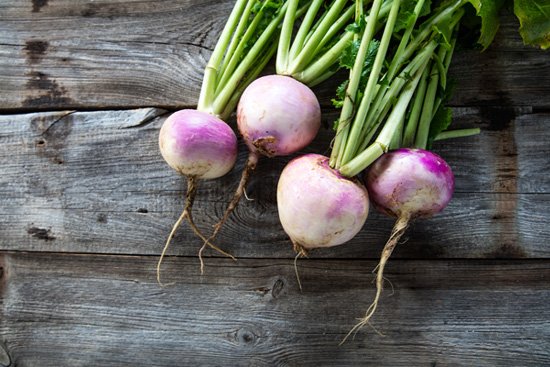When was the last time you craved turnips? Never right. While every mother can relate to the struggles she underwent to feed her kids turnip, it might be surprising to know that they stand on the list of the oldest and hardiest vegetables across the globe. Often grouped with rooted vegetables, turnip, in reality, comes from the cruciferous family. Turnip is a popular European staple food, which is considered the cousin of broccoli, Brussels sprouts, arugula, and kale. High in fibre, vitamins, and minerals, turnip is loaded with calcium, folate, and magnesium. While turnips are loaded with such helpful nutrients, let’s dig deep into the health benefits that they provide:
Reduces cancer risk
Consumption of cruciferous vegetables like turnip, cauliflower, and cabbage are linked to lowering cancer risk. This is because cruciferous vegetables carry several compounds like 3,3′-diindolylmethane and sulforaphane can play a potential role in cancer treatment, states a recent study.
Relieving intestinal problems
Some studies prove that high fibre meals are connected to lowering the risk of intestinal problems, like diverticulitis. Turnips can be very helpful in reducing the prevalence of diverticulitis flares by absorbing the water in the colon and making bowel movement easier.
Control blood sugar level
A study that was conducted for 9 months, showed that 45 mg of turnip extract lowered the blood sugar levels and increased the insulin levels in the rats, who were kept on a high sugar diet. Not only this, but the study also revealed that the turnip extract also helped in improving other metabolic disorders, which were associated with diabetes like high blood cholesterol and triglyceride levels.
Aids weight management
Low on calorie, non-starchy vegetables, turnips are also low in glycemic index, therefore consuming them has a minimal impact on your blood sugar levels. According to a recent study, these characteristics are extremely supportive in maintaining a healthy weight.


